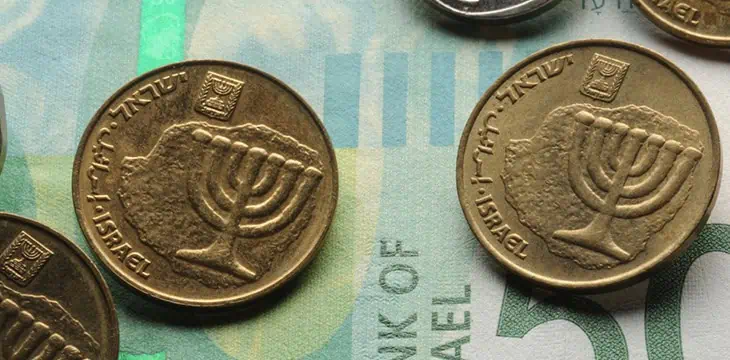|
Getting your Trinity Audio player ready...
|
Israel’s central bank has announced the first batch of participants in its digital shekel challenge, including PayPal (NASDAQ: PYPL) Israel and digital asset custodian Fireblocks.
Announced in May, the challenge invited applicants with ideas on how to boost payment efficiency and cut costs through the proposed digital shekel. It was inspired by the Bank of England’s (BoE) Project Rosalind’s two-tier API model and was open to lenders, payment companies, fintechs and academic innovation labs.
The Bank of Israel (BOI) has announced the 14 successful applicants participating in the first iteration. They are led by PayPal’s local subsidiary, Fireblocks, a digital asset custodian founded in Tel Aviv that has since shifted operations to New York.
Others include Kima Finance, Shva, Team Levana, Brinks Israel, Bits of Gold and Open Finance—all these companies are either based in Israel or have strong local links. One participant without a strong local presence is Idemia France SAS, a French firm with vast central bank digital currency (CBDC) experience that includes offering offline CBDC solutions for India.
Commenting on the new participants, BOI Deputy Governor Andrew Abir noted that they will assist the central bank “in the thinking, planning, and design of the digital shekel.”
Abir added that the bank has learned a lot from the 14 firms so far and intends to continue tapping on their expertise and experience to fine-tune the potential CBDC.
“The digital shekel’s potential to create innovation in the payments array will depend on the private sector’s ability to leverage the platform that the Bank of Israel will build, which is what makes this Challenge so important.”
The 14 participants proposed solutions touching on some key CBDC application areas, from programmable and split payments to interoperability with existing infrastructure and API functionality.
BOI will launch the sandbox in late August, and participants will then be able to start building these proposed solutions.
But while the BOI invests heavily in the exploration of a CBDC, Abir revealed two weeks ago that Israel is unlikely to pioneer the launch of a digital currency. Nigeria, the Bahamas and Jamaica are among a handful of countries that have launched their CBDCs, although none has been a big success.
However, no major economy has made the plunge. Some, like China, are more advanced, but none have been willing to take the bold step. According to Abir, Israel isn’t going to be the trailblazer.
“We’re all waiting for the first Western central bank to pull the trigger, which is almost certainly going to be the European Central Bank. And then you may see a rush of countries going forward with it,” he told Reuters.
Watch: CBDCs are more than just digital money

 08-02-2025
08-02-2025 





